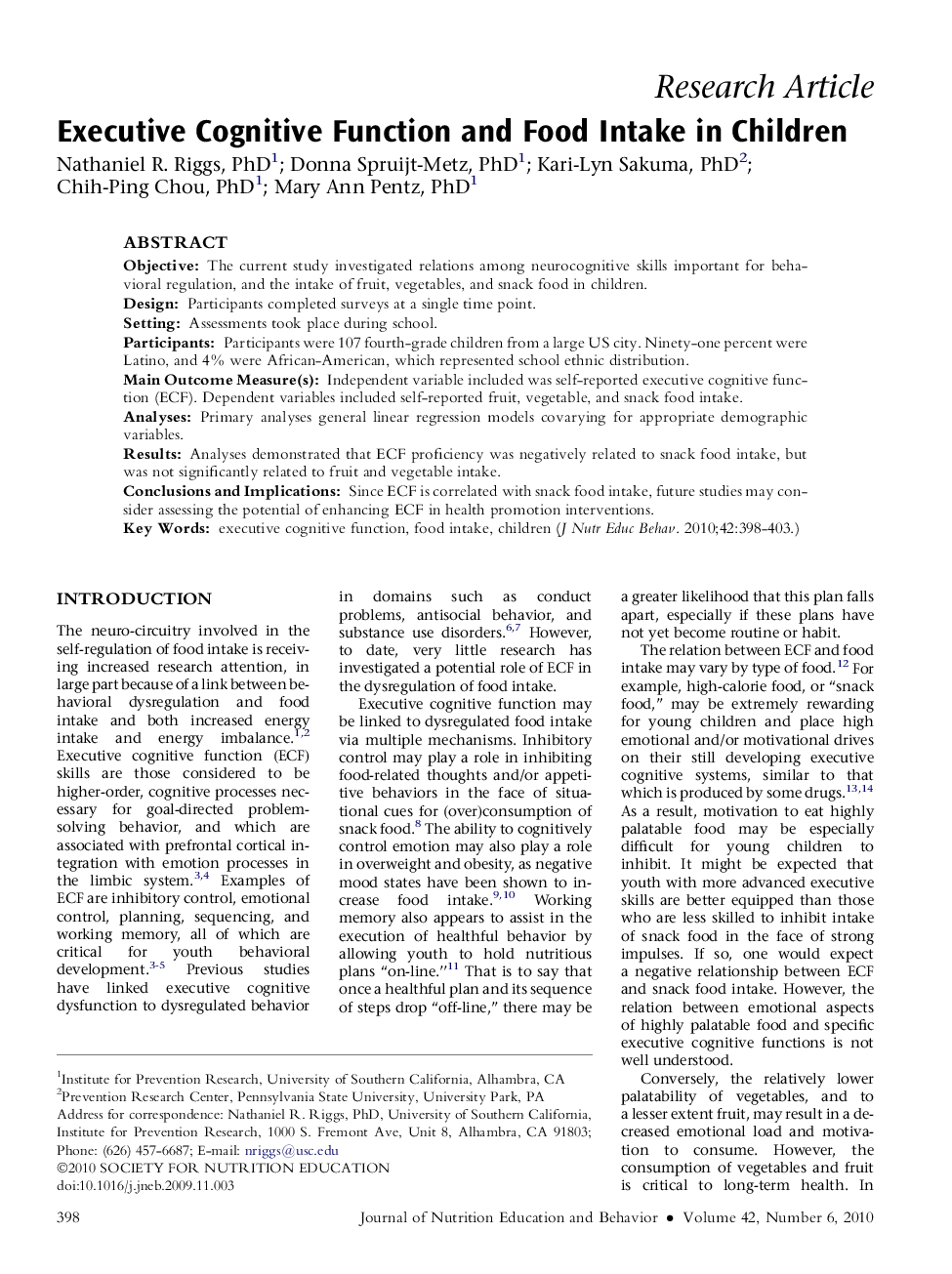| کد مقاله | کد نشریه | سال انتشار | مقاله انگلیسی | نسخه تمام متن |
|---|---|---|---|---|
| 361975 | 620617 | 2010 | 6 صفحه PDF | دانلود رایگان |

ObjectiveThe current study investigated relations among neurocognitive skills important for behavioral regulation, and the intake of fruit, vegetables, and snack food in children.DesignParticipants completed surveys at a single time point.SettingAssessments took place during school.ParticipantsParticipants were 107 fourth-grade children from a large US city. Ninety-one percent were Latino, and 4% were African-American, which represented school ethnic distribution.Main Outcome Measure(s)Independent variable included was self-reported executive cognitive function (ECF). Dependent variables included self-reported fruit, vegetable, and snack food intake.AnalysesPrimary analyses general linear regression models covarying for appropriate demographic variables.ResultsAnalyses demonstrated that ECF proficiency was negatively related to snack food intake, but was not significantly related to fruit and vegetable intake.Conclusions and ImplicationsSince ECF is correlated with snack food intake, future studies may consider assessing the potential of enhancing ECF in health promotion interventions.
Journal: Journal of Nutrition Education and Behavior - Volume 42, Issue 6, November–December 2010, Pages 398–403